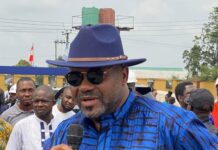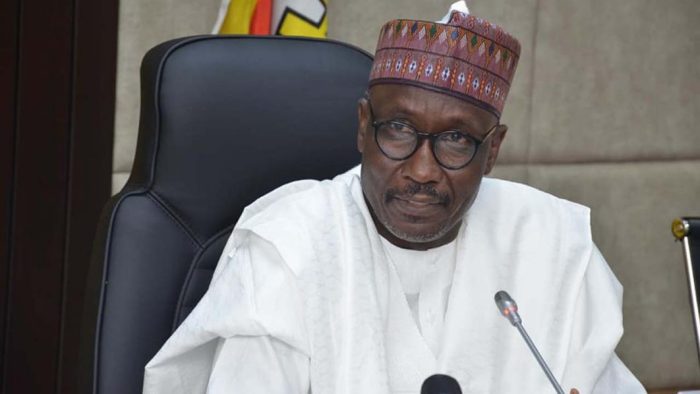(Photo:Marketplace.Credit :Rex Ejimonyeabala)
During my recent holiday to Nigeria, I had the opportunity to speak with friends and family about their concerns in the run up to the presidential and state elections this year. Against a dire political context of high inflation, fuel scarcity, a weak Naira and the expanding tyranny of Boko Haram’s insurgency, there was a theme that seemed to resonate when speaking to people in Abuja, Port Harcourt and Owerri; Nigeria’s political elite is failing the people once again.
Unfortunately this is not a novel concern. Political instability in Nigeria is as much a fixity as corruption is a way of life. However, what has changed over the past few months is how the implications of the government’s inability to suppress Boko Haram’s insurgency is spreading to neighbouring countries, and therefore threatening the livelihoods of communities from Southern Niger to Northern Cameroon. The militant group formed in 2002 in an effort to oppose Western education in Nigeria, but since 2009 they have launched numerous attacks in Northern and Central Nigeria and recently declared allegiance to the Islamic State, reflective of their efforts to create an Islamic caliphate in Northern Nigeria.
Human Rights Watch estimates that in 2014, approximately 3,750 civilians were killed by Boko Haram in Nigeria alone. This is in addition to the hundreds of boys, girls, women and men who have been subjected to their kidnapping campaign in the North-East of Nigeria. In 2015, Boko Haram has already launched deadly attacks in Maiduguri, Baga and Bama (Borno State, Nigeria), and Lake Chad, a tri-border crossroad between Nigeria, Chad and Niger.
The pertinence of this is something that we in Europe can relate to. The past year has proven that the core values we aspire to, for freedom of expression and freedom to learn, women’s equality and rights to education, are under attack from organised groups and radicalised individuals just as they are in Nigeria; a recent example being the Copenhagen shootings. The quotidian terrorising of innocent people across the North-East of Nigeria is a severe manifestation of this reality.
Other than the scale of the attacks, a consequential difference between events in Europe and West Africa has been the response by those who have been elected and appointed to serve and protect the people. In Europe, convincing arguments can and have been made against the growing infringement of governments’ surveillance on civilians; demonstrably realised by the implementation of the UK’s ‘Data Retention and Investigatory Powers’ Bill of 2014. However, there is hardly any doubt about European governments’ strategic approaches to counter acts of terror. In Nigeria, there is not only doubt, but confusion and even chaos.
I duly acknowledge the disparities between the technological and economic capabilities necessary for effective enforcement at the disposal of the Nigerian government in contrast to European governments, but what ought to be critiqued is the Nigerian government’s lethargic approach to a proportionate response against Boko Haram’s insurgency.
In May 2013 President Goodluck Jonathan declared a State of Emergency in three North-Eastern states; Adamawa, Yobe and Borno, the latter of course where more than 200 school girls would be kidnapped from less than a year later. Having declared a State of Emergency in this region, the President should have tasked the Armed Forces with deploying far greater resources into those states, not because he or indeed anyone could have anticipated the abduction of 200 girls and the international outcry that would ensue, but because Boko Haram have been terrorising and displacing citizens in the region since 2009. Estimates from Human Rights Watch and Amnesty International suggest that between 1-1.5 million people have been displaced as a result of Boko Haram’s insurgency.
Reports from Nigeria about the government’s response have ranged from partisan accusations of political and financial support for Boko Haram – who are substantially well equipped – to claims from military personnel that frontline troops are comparably ill-equipped. Beneath it all lies a quagmire of uncertainty and misdirection, the consequences of which are of course suffered by regular civilians living in perpetual fear. These implications raise questions in light of the fact that Nigeria possesses the most capable armed forces in West Africa. Nigerian forces led peacekeeping missions during civil wars in Liberia and Sierra Leone in the 1990s as the principle contributor to ECOMOG; the peacekeeping arm of ECOWAS. As such, it begs the question, how is Nigeria capable of undertaking peacekeeping missions in entire countries, albeit small countries, yet unable to suppress the terror of insurgents in three domestic states? I won’t pretend to have the answer to this question because it is one that has dumbfounded many others wiser and more informed than I.
Recent events would suggest, however, that Nigeria has initiated some form of multilateral strategic response with a coalition of forces from Nigeria, Cameroon, Chad, Niger and reports of hired South African mercenaries in an attempt to counter Boko Haram’s expanding insurgency. In addition to this, the scheduled presidential election in Nigeria which was supposed to take place on 14th February has been postponed until March 28th by an independent commission in order to allow the coalition time to contain Boko Haram and ensure the distribution of over 30 million voting cards to citizens in the north. In practice this means that Nigerians have had to wait before exercising their democratic right to decide who will lead them against this tyranny.
Their choice is between PDP incumbent, President Jonathan, who has proved ineffective in his endeavours to preserve security, and APC opposition candidate Muhammadu Buhari, a former military dictator in the mid-1980s, accused of innumerable human rights abuses and now running for democratic president for the fourth time. In Buhari’s favour, the people I spoke with in different regions of the country seem to believe that he will crack down on corruption; regrettably a pledge that now resembles a political mantra rather than a deliverable objective. Nigerians are stuck between a very hard rock and an even harder place.
The challenges that the country faces in the coming year may be different, the implications of the leadership’s decisions and indecisions may be wider but this is just a different chapter of a familiar story and the victims are always the same.




